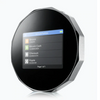
The craft of composing text goes beyond just arranging words; it involves intricacy and vibrancy. Intricacy adds depth, while vibrancy introduces rhythm. The fusion of both yields a captivating narrative. Let's delve into the provided content on selecting a cryptocurrency wallet, embracing complexity and dynamism within a formal context.
Deciphering Cryptocurrency Wallets
In the expansive world of digital currencies, the surge in available digital wallets is evident. For those unfamiliar with the landscape, understanding the difference between a hard wallet and soft wallet might seem perplexing. This comprehensive explanation aims to simplify the spectrum, helping you make informed choices that align with your needs.
Cracking the Cryptocurrency Wallet Code
A cryptocurrency wallet acts as a digital vault for safeguarding your digital assets. These vaults come in two main types: hardware wallets, which are offline, and software wallets, which are online.
It's worth clarifying that these wallets don't store your actual cryptocurrencies. Instead, they hold the cryptographic keys that enable access to your assets on the blockchain. These keys are like secret passwords that allow you to manage your funds.
Understanding Cryptocurrency Wallet Functions
 Think of a cryptocurrency wallet as a secure container for your digital coins. You can store them, send them, and check your balance. There's a variety of wallets out there, each with unique features.
Think of a cryptocurrency wallet as a secure container for your digital coins. You can store them, send them, and check your balance. There's a variety of wallets out there, each with unique features.
One of the perks? You're in control. Unlike traditional banks, you're the decision-maker here. No freezing of accounts or interference with your funds.
How Cryptocurrency Wallets Operate
Imagine your wallet as a lockbox and the key as your private code. This code is your ticket to accessing your crypto treasures in the blockchain. When you send or receive coins, the blockchain records it. Your wallet interacts with the blockchain, updating your balance and transactions in real time.
However, even the strongest armor has chinks. So, play it safe: choose a reputable wallet provider, enable two-factor authentication, and stay vigilant against potential threats.
Diverse Wallet Types
Now, let's explore the two primary wallet types: hard and soft.
A hard wallet is like a fortified vault. It's a physical device that stores your assets offline. On the other hand, a soft wallet is a software application that operates online. While hardware wallets are more secure, software wallets offer convenience.
Meet the Wallet Stars
Take a look at Exodus – it's like a stylish friend who's great at currency swaps. Jaxx is another soft wallet, supporting over 80 cryptocurrencies. MyEtherWallet is perfect for Ethereum enthusiasts.
Hard Wallet vs. Soft Wallet – The Decision

Think about what's most important to you when picking between a hardware wallet and a software wallet. Keeping a large amount of cryptocurrency? Choose the one with metal. Need quick access to do your daily business? A software wallet suits better. Remember, your choice hinges on factors like cost, accessibility, and personal preferences
Essentials of Wallet Selection
Selecting the right wallet might seem daunting, especially for beginners. Here are some key points to ponder:
Security:
Prioritize wallets with strong security features like two-factor authentication and regular updates.
Compatibility:
Ensure the wallet supports the cryptocurrencies you want to store. Some wallets support multiple coins, which is great for diversification.
User Experience:
A user-friendly interface makes managing your assets smoother. Look for wallets with easy navigation and helpful features.
Backup and Recovery:
Choose a wallet that offers backup options. If you lose access, you'll need a recovery option.
Popular Hard Wallets:
Below are some of the popular hardware wallets on the market;
 Ledger Nano Series
Ledger Nano Series
The Ledger Nano series is a popular hard wallet that supports over 1,500 cryptocurrencies. It's user-friendly and has a backup seed phrase for recovery. These wallets are known for their security features, ease of use, and built-in screen to verify transactions.
Trezor Wallets 
Trezor wallets are another popular hard wallet that supports over 1,000 cryptocurrencies. It's open source and offers a password manager feature for added security.
KeepKey Wallet
KeepKey is like a special lockbox for your digital money, called cryptocurrencies. It's a physical device that's built to keep your cryptocurrencies super safe. It supports over 50 cryptocurrencies.
In Conclusion
Choosing the right cryptocurrency wallet is pivotal. Your choice impacts security, accessibility, and ease of use. Armed with these insights, you're poised to navigate the landscape of digital wallets with discernment. Navigate the world of cryptocurrency wallets! Discover the ultimate guide to choosing the perfect wallet for you.





















































